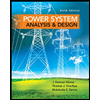Question 4. A 3-phase, 8-pole, 50 Hz, 400 Vrms (line-to-line) Y-connected synchronous machine has 10 per phase synchronous reactance and 0.5 § stator winding resistance per phase. The machine is connected to an infinite bus (ideal voltage source V₁ = 400 V), and is delivering Vt 10 kW, 0.75 power factor (PF) leading. (a) Determine the excitation voltage, power angle and the torque for this condition. (b) Draw the phasor diagram. (c) Suppose the field current is now adjusted to achieve unity power factor with the same input power at the terminal. Determine the new power angle to achieve this condition.
Question 4. A 3-phase, 8-pole, 50 Hz, 400 Vrms (line-to-line) Y-connected synchronous machine has 10 per phase synchronous reactance and 0.5 § stator winding resistance per phase. The machine is connected to an infinite bus (ideal voltage source V₁ = 400 V), and is delivering Vt 10 kW, 0.75 power factor (PF) leading. (a) Determine the excitation voltage, power angle and the torque for this condition. (b) Draw the phasor diagram. (c) Suppose the field current is now adjusted to achieve unity power factor with the same input power at the terminal. Determine the new power angle to achieve this condition.
Power System Analysis and Design (MindTap Course List)
6th Edition
ISBN:9781305632134
Author:J. Duncan Glover, Thomas Overbye, Mulukutla S. Sarma
Publisher:J. Duncan Glover, Thomas Overbye, Mulukutla S. Sarma
Chapter12: Power System Controls
Section: Chapter Questions
Problem 12.4P
Related questions
Question

Transcribed Image Text:Question 4.
A 3-phase, 8-pole, 50 Hz, 400 Vrms (line-to-line) Y-connected synchronous
machine has 10 per phase synchronous reactance and 0.5 § stator winding resistance per phase.
The machine is connected to an infinite bus (ideal voltage source V₁ = 400 V), and is delivering
Vt
10 kW, 0.75 power factor (PF) leading.
(a) Determine the excitation voltage, power angle and the torque for this condition.
(b) Draw the phasor diagram.
(c) Suppose the field current is now adjusted to achieve unity power factor with the same input
power at the terminal. Determine the new power angle to achieve this condition.
Expert Solution
This question has been solved!
Explore an expertly crafted, step-by-step solution for a thorough understanding of key concepts.
Step by step
Solved in 2 steps with 4 images

Recommended textbooks for you

Power System Analysis and Design (MindTap Course …
Electrical Engineering
ISBN:
9781305632134
Author:
J. Duncan Glover, Thomas Overbye, Mulukutla S. Sarma
Publisher:
Cengage Learning

Power System Analysis and Design (MindTap Course …
Electrical Engineering
ISBN:
9781305632134
Author:
J. Duncan Glover, Thomas Overbye, Mulukutla S. Sarma
Publisher:
Cengage Learning